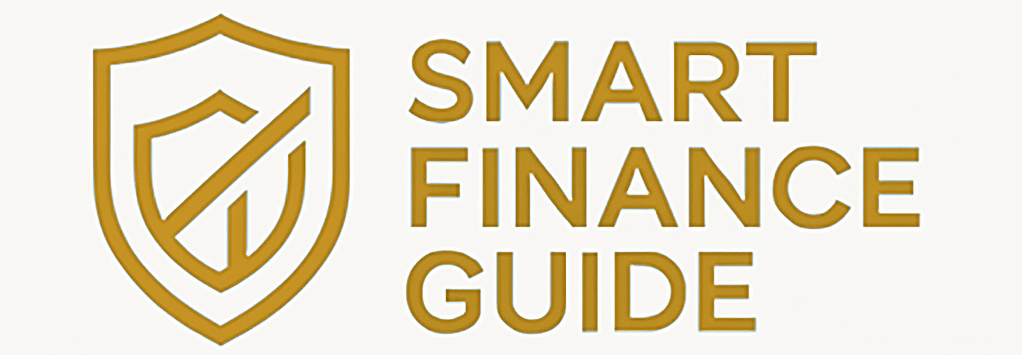In the world of personal finance, the terms “investment” and “insurance” are often mentioned — and rightly so. They are two critical components of a sound financial strategy. However, without financial literacy, even the best insurance policies or promising investment opportunities can become traps rather than tools for success.
In this article, we’ll explore how financial literacy acts as the foundation of informed investing and responsible insurance management — and why every person, regardless of income or experience, should prioritize financial education in 2025.
What Is Financial Literacy?
Financial literacy is the ability to understand and use various financial skills, including:
- Budgeting
- Saving and investing
- Using credit responsibly
- Understanding financial products like loans, insurance, and retirement accounts
Being financially literate doesn’t mean being a financial expert. It means having the practical knowledge to make smart decisions with your money — and understanding the long-term consequences of your financial choices.
Why Financial Literacy Is More Important Than Ever
In today’s fast-changing financial environment, the average person faces:
- Complex investment options
- New technologies like cryptocurrency and robo-advisors
- Varying insurance products and legal terms
- Frequent economic shifts, inflation, and interest rate changes
Without solid financial literacy, it’s easy to:
- Fall for high-risk schemes
- Overpay for insurance
- Miss out on compounding growth
- Be unprepared for emergencies
In 2025, being financially literate is no longer optional — it’s a survival skill.
How Financial Literacy Supports Smart Investing
1. Understanding Risk and Return
A financially literate investor knows that:
- Stocks offer higher returns but more volatility
- Bonds are generally safer but yield less
- Diversification is key to balancing risk
This knowledge helps you:
- Set realistic expectations
- Avoid emotional decisions
- Choose appropriate investments for your goals
2. Knowing Your Investment Options
Without financial knowledge, people often invest based on hype or hearsay. With financial literacy, you’ll know:
- The difference between ETFs and mutual funds
- How IRAs, 401(k)s, and Roth accounts work
- Why fees and expense ratios matter over time
3. Long-Term Thinking
Financial literacy teaches you to focus on:
- Compound interest
- Consistent contributions
- Long-term strategies instead of short-term speculation
A well-informed investor is less likely to panic during market downturns — and more likely to stay the course.
How Financial Literacy Improves Insurance Decisions
Insurance can be confusing, with dense terms and complicated conditions. Financially literate individuals understand:
1. The Types of Insurance They Need
From life and health insurance to auto, homeowners, and disability, different life stages require different protections.
Without financial education, people often:
- Over-insure and pay unnecessary premiums
- Under-insure and face massive risks
2. How to Read a Policy
Financial literacy helps you understand:
- Premiums: What you pay regularly
- Deductibles: What you pay out of pocket before coverage begins
- Coverage limits: The maximum the insurer will pay
- Exclusions: What’s not covered
This prevents surprises during claims.
3. The Importance of Comparing Policies
A knowledgeable person knows to compare:
- Rates from multiple providers
- Reviews and claim satisfaction
- Coverage details, not just price
This leads to better protection and greater value for money.
The Link Between Insurance and Investing
Many people treat insurance and investing as separate worlds — but they’re closely connected.
- Insurance protects your wealth, ensuring an accident doesn’t wipe out your savings or investments.
- Investing grows your wealth, helping you meet long-term goals like retirement or education.
Financial literacy helps you integrate the two:
- Using life insurance as part of estate planning
- Investing through insurance-linked investment products
- Building a safety net (emergency fund + insurance) before investing heavily
Where to Learn Financial Literacy in 2025
There are more resources than ever to improve your financial knowledge:
- Online platforms: Coursera, Udemy, and Khan Academy offer free/low-cost courses
- Government sites: Investor.gov and MyMoney.gov (U.S.)
- Books: Titles like The Simple Path to Wealth, Rich Dad Poor Dad, or Your Money or Your Life
- Podcasts: “The Ramsey Show”, “Afford Anything”, “BiggerPockets Money”
The key is consistency. Choose one or two sources and commit to learning a little each week.
Practical Tips to Strengthen Your Financial Literacy
- Track your expenses for a month — know where your money goes
- Read one finance article per day
- Talk to a financial advisor (preferably a fiduciary)
- Join online communities (like Reddit’s r/personalfinance)
- Teach someone else — the best way to learn is to explain
Final Thoughts: Knowledge Is the Real Asset
You can’t control the market, and you can’t predict every emergency — but you can control how much you know. Financial literacy is the one investment that never loses value.
Whether you’re buying your first stock or choosing a health insurance plan, your ability to make informed decisions can protect your wealth, reduce stress, and open up long-term financial success.
Don’t wait for a crisis to realize what you didn’t know. Learn now — and invest and insure with confidence.

